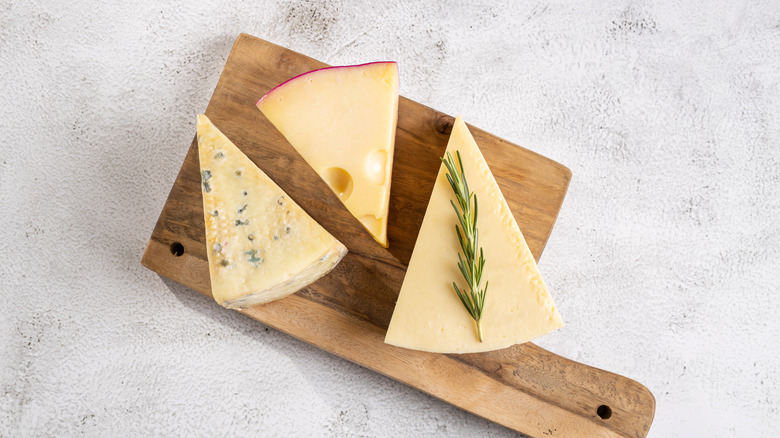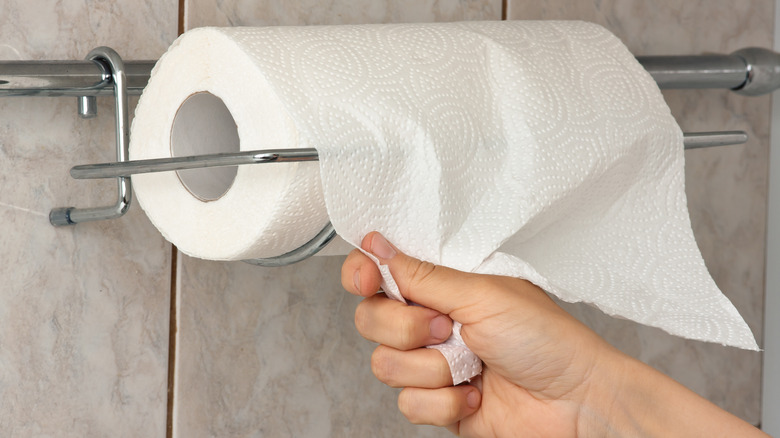The Vinegar Trick That Will Keep Your Cheese Fresher For Longer
Typically, we're not eating a whole block of cheese in one sitting. We'll shred and grate our fromage into various recipes, cut slices for a charcuterie board, or nibble on chunks as a tasty snack. But considering some cheeses can come with a hefty price tag, we want to keep them lasting as long as possible in the fridge until our next opportunity to use them arises. We know quite a few tricks for storing specific types– such as ricotta and homemade pimento – but there's one nifty hack that you can use with almost any type of hard block and it involves a kitchen staple that you likely already have in your pantry: white vinegar.
Before you transfer your opened cheese to an air-tight container, wrap it in a paper towel or cheesecloth dipped in vinegar. Luckily, this won't make your block taste like sour liquid. But it will protect your goods against growing mold and bacteria, thanks to its acetic acid, which is a common mold and fungi deterrent. Plus, moisture (in small amounts) is good for your cheese's lifespan, so the vinegar can help in this department as well.
Stick to wrapping hard cheese in vinegar
If you want to test out this hack to keep your cheese fresh for ages, pour a drizzle of white vinegar on your paper towel or cheesecloth (to coat it as evenly as possible, ball it up in your hand first, then smooth it out once it's damp). When your block is nice and cozy in its vinegar-infused wrapper, you can double-wrap it in cheese paper since this coating is designed to allow it to breathe. But avoid plastic wrap at all costs, as it will suffocate your fromage instead. If you don't have specialty paper, transfer your vinegary cheese to an airtight container and toss it in the fridge. Resist the urge to use the cheese drawer, as your vegetable bin at the bottom will have more optimal humidity levels.
After following these steps, your block should resist mold for weeks. But it's worth noting that this trick won't perform well on all types of cheese. Harder varieties, like provolone and cheddar, will fully embrace it, but it may alter the taste or texture of softer cheeses like mozzarella and brie, which require a slightly difference method of storage. If you want to keep your Gouda or parmesan fresh for as long as possible, however, reach for a bottle of vinegar.

